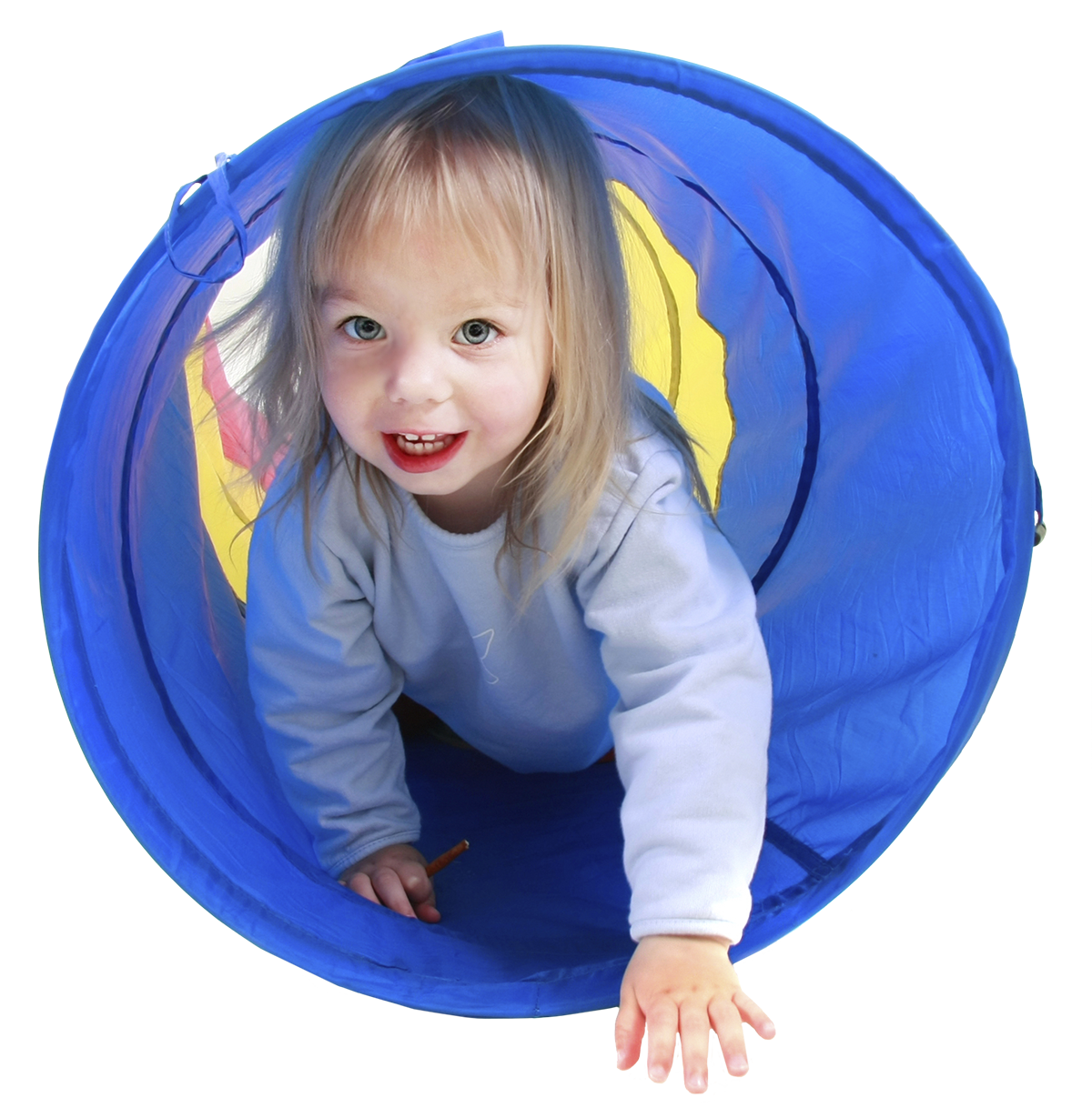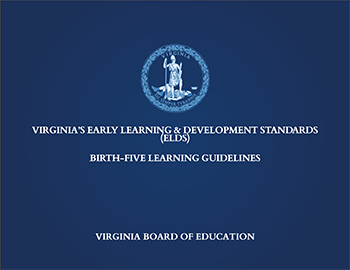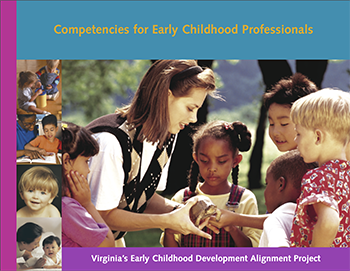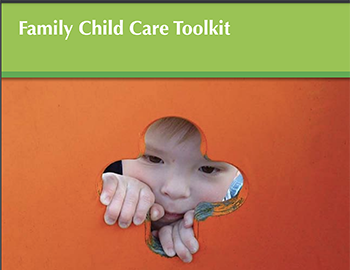Provider Resources
Being a teacher and caregiver of a baby or a toddler can be both fun and hard work. A baby’s health and safety is the biggest responsibility you’ll face as a teacher. From immunizations to doctor visits to treating tummies, learn how to prepare for any aches and pains that lie ahead. These helpful links and images from Centers for Disease Control and Prevention focus on children ages zero to three and will help you learn how to give the infants and toddlers you teach a healthy start to life.
Diseases & Conditions
When one of your children is sick you want answers. Find out what you need to know about common childhood diseases and conditions. The links on this page will help you learn about diseases and conditions that could affect the children in your classroom. If you don’t find what you are looking for, browse all teachers topics or view CDC’s A to Z index for a more detailed list of topics.
Autism, Birth Defects, Common Cold, Ear Infection, Flu, Group B Strep, Jaundice …More
Milestones & Schedules
You can see a child’s development by how they play, learn, speak, and act. Teachers and caregivers play a critical role in the development of infant and toddlers. Providing a safe and loving classroom and spending time together – playing, singing, reading, and even just talking – can make a big difference! Besides tracking your children’s growth and development, you can learn about topics such as developmental disabilities, immunization recommendations, and screening.
Child Development, Developmental Milestones, Growth Charts, Immunization Scheduler, Vaccines and Immunization Questions …More
Safety in the Home & Community
Keeping your children safe is the classroom is your number one concern. Get expert tips on how to keep your child safe in your classroom and community. You play an important role in keeping your childen safe — no matter how old he or she is. The links below provide information and tools to help protect your baby and toddler from injuries and violence.
Child Passenger Safety, Medicine Safety, Safety in Your Home, Sudden Infant Death Syndrome (SIDS), Vaccine Safety …More
Raising Healthy Children
This section provides you with information that will be helpful for you as a teacher and caregiver. The information in this section will also support your pupil’s parents in raising a healthy baby.
Breastfeeding, Infants & Toddlers Health, Infant Immunization Questions, Positive Parenting Tips …More
The internet provides information on numerous topics of interest to professionals. The alphabetized list below is just a sample of websites related to the growth and development of young children.
211 Virginia
www.211virginia.org
2-1-1 is an easy to remember phone number connecting people with free information on available community services. When you dial 2-1-1, a trained professional listens to your situation and suggests sources of help using one of the largest databases of health and human services in Virginia.
American Academy of Pediatrics
www.aap.org
This site offers child health information to both parents and professionals. The publications section is particularly helpful to obtain the latest policies and publications regarding children’s health and safety.
Beginning Together
cainclusion.org/bt/
Beginning Together was created in collaboration with the California Department of Education, Child Development Division (CDD) and WestEd, Center for Child and Family Studies as an inclusion support to the Program for Infant/Toddler Care (PITC).
The purpose of Beginning Together is to ensure that children with special needs are incorporated, and appropriate inclusive practices are promoted, in the training and technical assistance provided by the existing cadre of CDE/WestEd certified trainers in the PITC. This is accomplished through a “training of trainers” institute, regional outreach activities, revision/development of written materials, support to institute graduates, and support of inclusive practices in other PITC activities, such as the demonstration programs.
Birth to Five: Watch Me Thrive
www.acf.hhs.gov/ecd/child-health-development/watch-me-thrive
This resource encourages healthy child development, universal development and behavioral screening for children, and support for the families and providers who care for them.
Breastfeeding Friendly Early Care Recognition
https://vachildcare.com/child-care-providers/virginia-breastfeeding-friendly-early-care-recognition/
Are you committed to best practices in child nutrition? Early childhood programs serving infants and young children can apply at this site to become a Breastfeeding Friendly Early Care Program.
Bright Futures
www.brightfutures.org
Current and emerging preventative and health promotion of infants, children, and families. This site features guidelines for health supervisors; a section for developmental issues and strengths in the infancy period; and related publications.
CELLcasts, Center for Early Literacy Learning
www.earlyliteracylearning.org
The goal of the Center for Early Literacy Learning (CELL) is to promote the adoption and sustained use of evidence-based early literacy learning practices. This site has resources for early childhood intervention practitioners, parents, and other caregivers of children, birth to five years of age, with identified disabilities, developmental delays, and those at-risk for poor outcomes.
Center for Early Childhood Mental Health Consultation
www.ecmhc.org/index.html
The Center for Early Childhood Mental Health Consultation was created through a grant from the Office of Head Start. For mental health consultants, Head Start program administrators, Head Start staff, training/technical assistance providers, and families, this website has a variety of resources related to stress management and relaxation for both parents and caregivers.
Center for Parent Information and Resources
www.parentcenterhub.org
The Center for Parent Information and Resources (CPIR) serves as a central resource of information and products to the community of Parent Training Information (PTI) Centers and the Community Parent Resource Centers (CPRCs), so that they can focus their efforts on serving families of children with disabilities.
Center on the Developing Child: Activities Guide: Enhancing and Practicing Executive Function Skills with Children from Infancy to Adolescence
https://developingchild.harvard.edu/resources/activities-guide-enhancing-and-practicing-executive-function-skills-with-children-from-infancy-to-adolescence/
Executive function and self-regulation (EF/SR) skills provide critical supports for learning and development, and while we aren’t born with these skills, we are born with the potential to develop them through interactions and practice.
This 16-page guide (available for download, below), describes a variety of activities and games that represent age-appropriate ways for adults to support and strengthen various components of EF/SR in children.
Each chapter of this guide contains activities suitable for a different age group, from infants to teenagers. The guide may be read in its entirety (which includes the introduction and references) or in discrete sections geared to specific age groups.
Child Care and Early Education Research Connections
www.researchconnections.org
An effective tool for policymakers and researchers that facilitates access to current research and findings, datasets, statistics, instruments, and other analytic tools related to child care and early childhood education.
Child Care Aware® of America
www.childcareaware.org
Child Care Aware® of America aims to promote national policies and partnerships to advance the development and learning of all children and to provide vision, leadership, and support to community Child Care Resource and Referral.
Child Care Aware® of Virginia
Child Care Aware® of Virginia is a community-based network of early care and education specialists whose purpose is to deliver services to families, child care professionals and communities to increase the accessibility, availability, and quality of child care in Virginia.
Child Care Bureau
www.acf.dhhs.gov/programs/ccb/
Information on the Child Care and Development Block Grant, links to other Administration on Children and Families sites and other information within the Department of Health and Human Services, with links to other related child care sites.
Child Care VA
https://doe.virginia.gov/cc/
This website provides easy-to-find child care information and materials created specifically for parents, providers, and the general public. It includes child care licensing rules, the importance of health and safety standards, and the benefits of quality child care in Virginia.
CIVITAS
https://childtrauma.org/
The CIVITAS Child Trauma Programs at Baylor College of Medicine are attacking child maltreatment in several areas. The Family Information section has information on the effects of traumatic events on children and what you can do to fight child abuse. The site also contains some articles in Spanish.
Council for Exceptional Children
www.cec.sped.org
This professional organization is dedicated to improving educational outcomes for individuals with disabilities and the gifted. The Web site offers resources for people working with and advocating for students with special needs.
Department of Health and Human Services – Temporary Assistance for Needy Families
www.acf.hhs.gov
An invaluable resource for the latest news on Temporary Assistance for Needy Families (TANF). You can obtain essential documents regarding child support, child care funds to states, Medicaid resources, and the Welfare Reform Implementation Informational Package. Some of these documents are available in Spanish.
Diapering Poster
www.ecels-healthychildcarepa.org
This poster is based on Caring for Our Children, 3rd Edition, a publication of the American Academy of Pediatrics (AAP), American Public Health Association, and the NRC for Health and Safety in Child Care and Early Education; created by CCA Global with guidance from the Pennsylvania Chapter of the AAP.
Early Head Start National Resource Center
eclkc.ohs.acf.hhs.gov/ncecdtl
This site contains a database of all the Early Head Start program sites as well as valuable tips and strategies for trainers and many full text documents on a range of infant/toddler related topics.
For Our Babies
forourbabies.org/
For Our Babies is a national movement promoting healthy development in U.S. children from conception to age 3. They advocate for the types of environments, experiences, and relationships that infants and toddlers need in order to thrive.
Go NAP SACC
www.gonapsacc.org
“Go NAP SACC” is the next generation of NAP SACC, featuring new tools on an interactive website. Updates include resources for children from birth – 5 years, plus a new focus on breastfeeding and infant feeding, screen time, and outdoor play. Go NAP SACC can also tailor tools and recommendations for different child care settings, including family child care homes. The new Go NAP SACC website, found here at www.gonapsacc.org, gives technical assistance professionals self-assessments and other tools to keep up to date with the activities and needs of child care programs. The website is still a work in progress and new materials will be added over the next several years. Be sure to also follow Go NAP SACC on Facebook (https://www.facebook.com/GoNAPSACC) and Twitter.
IECMHC Toolbox
www.samhsa.gov/iecmhc/toolbox
The Infant and Early Childhood Mental Health Consultation (IECMHC) toolbox offers information about the latest research and best practices for IECMHC in infant and early childhood settings where consultation occurs, such as home visiting, early care, and education. It also includes resources and strategies on best practices to help fill the gap in areas where additional guidance is needed to advance the field of IECMHC.
IMPACT Registry
www.vaimpactregistry.org
IMPACT is Virginia’s early childhood professional development registry. This voluntary tool documents and recognizes the achievements of practitioners and trainers who work in the early childhood education and school-age care profession within the Commonwealth of Virginia. This tool will help track formal and informal education, qualifications, and training, provide a pathway for planning future education and training, and maintain a record of professional development housed in one convenient, secure, online location available 24/7.
Keeping Babies Safe
www.keepingbabiessafe.org
Keeping Babies Safe, the American Academy of Pediatrics and the U.S. Consumer Product Safety Commission partnered to bring you a national education campaign on sleep safety entitled “Safe Sleep (Environments) for Babies.”
Kinedu
https://app.kinedu.com
Help your young child learn and grow through play: Thousands of fun activities personalized to your child’s age and needs (birth to age 4)
LENA: Caregiver Engagement Resources: Indoor Play
lena.org
LENA has gathered resources and information about indoor play. With shelter-in-place orders in place for most of the country, it’s likely that the caregivers you serve are spending more time than usual inside with their children. Here are a few ideas for how to talk with infants and toddlers during indoor playtime:
- Toddler — #2. Comment on what they’re doing or looking at: When your toddler is playing with their toys, join in on the fun. For example, if dinosaurs are popular with your children, try commenting on their make-believe dino adventures to serve up loads of fun. “Your triceratops looks very fierce, how many horns does he have? Where does he find food?”
- Infant — #1. Talk about what you’re doing and thinking: Take a tour of the house/yard. Put your infant in a carrier or carry them in your arms and take a walk around. Look at pictures on the walls and talk about who you see. Walk from window to window and see what’s outside. Go outside and talk about the plants, animals, cars, people, etc. that you see.
You’re welcome to share these ideas with our Indoor Play graphic or this indoor play Talking Tip video with your community.
Let’s Move! Child Care State Challenge
healthykidshealthyfuture.org/
Let’s Move! is a comprehensive initiative from U.S. First Lady Michelle Obama that’s dedicated to solving the problem of obesity within a generation, so that kids born today will grow up healthier. Combining comprehensive strategies with common sense, Let’s Move! is about putting children on the path to a healthy future during their earliest months and years.
National Association for Family Child Care
www.nafcc.org
The National Association for Family Child Care is a non-profit organization dedicated to promoting quality child care by strengthening the profession of family child care.
National Center for Pyramid Model Innovations Statement on Equity and Inclusion
https://challengingbehavior.org/implementation/equity/overview/
The National Center for Pyramid Model Innovations (NCPMI) promotes policies and practices that advance equity, diversity, and the full inclusion and participation of all young children and their families in early care and education environments. The Pyramid Model practices and implementation approach affirm and celebrate the unique identities of young children and their families across all social identities.
The National Parenting Center – TNPC
www.tnpc.com
This site offers parenting resources and advice from experts in the field of child development. Professionals may find useful advice and helpful tips to share with parents.
National Resource Center for Health and Safety in Child Care
nrckids.org/
This site has many links to related sites pertaining to child care, child health, special needs, and parenting. You can also find each states child care licensing regulations and the National Guidelines for Out of Home Care Programs – Health and Safety Performance Standards.
Nemours Foundation/Kidshealth
www.kidshealth.org
Developed by pediatric medical specialists, this site offers information on child health to children, parents, and medical professionals. The parenting section offers information about specific illnesses and parent support groups.
Parents Action for Children
www.parentsaction.org
This site provides information regarding key issues in child development, parenting questions, expert advice, resources, and a community action campaign.
Parents as Teachers National Center
www.parentsasteachers.org
Parents as Teachers is a trusted resource providing a proven home visiting model for the most respected organizations and professionals who meet the evolving needs of families. Their work with the professional community helps young children grow up healthy, safe and ready to learn.
PD Essentials
www.vcpd.net
This site promotes high quality training for early childhood practitioners and offers information on regional activities, conferences, online training, and more!
The Program for Infant/Toddler Care
www.pitc.org
The Program for Infant Toddler Care seeks to ensure that America’s infants get a safe, healthy, emotionally secure and intellectually rich start in life.
Resources for Infant Educarers
www.rie.org
Resources for Infant Educarers (RIE) teaches a unique philosophy and methodology in caring for infants. The teachings of Magda Gerber, incorporating respect, quality time, patience and observation are offered in the form of training classes, books and videos. The site is a resource for parents and professional infant/toddler care teachers.
Safe Sleep
healthychildren.org/English/healthy-living/sleep/Pages/default.aspx
This brochure, A Parents’ Guide to Safe Sleep, is designed to help parents reduce the risk of Sudden Infant Death Syndrome (in English and Spanish).
Tummy Time
healthychildren.org/English/ages-stages/baby/sleep/Pages/The-Importance-of-Tummy-Time.aspx
Back to Sleep, Tummy to Play, from the American Academy of Pediatrics, answers questions about the importance of safe play and sleep (in English and Spanish).
VA Child Care & ECE Job Hub
vachildcarejobs.com
VA Child Care and ECE Job Hub allows programs to generate a job posting and automatically share it to 9 different job search websites simultaneously including Indeed, Google and LinkedIn. Find and apply for job opportunities using VA Child Care and ECE Job Hub.
Virginia Child Care Provider Scholarship Program
https://www.childcare.virginia.gov/providers/training-and-professional-development
The purpose of this tuition assistance program is to offer child care providers foundational knowledge and skills in the care and development of children. Funded by the federal Child Care and Development Fund, the program allows early educators to attend undergraduate courses at Virginia’s accredited colleges.
Virginia Early Childhood Foundation
www.vecf.org
The Virginia Early Childhood Foundation is a network of locally operated coalitions that are working to improve the quality of care and education for children from birth until kindergarten. In the state of Virginia, 1 out of 7 children will enter kindergarten unprepared. That’s why Virginia Early Childhood Foundation partners across the state are working with parents and early childhood professionals to ensure that each child will be ready to succeed in school and in life.
Virginia Department of Social Services (VDSS)
www.dss.virginia.gov
The Virginia Department of Social Services (VDSS) provides assistance to citizens of Virginia to help them live their best lives. One child, one senior citizen, one person at a time, VDSS programs and services help people triumph over poverty, abuse and neglect, achieve self-sufficiency and shape strong futures for themselves, their families and their communities. This web site provides information on the programs, activities and resources that VDSS uses to achieve these goals.
Virginia’s Preservice Training for Child Care Staff–Virginia’s Health and Safety Training
https://www.childcare.virginia.gov/families/health-and-safety
This FREE online course introduces child care staff to important health and safety information and addresses other topics such as child development, inclusion, and Virginia’s Subsidy and Licensing Programs. Participants will earn a 10-hour training certificate upon completion and a CEU! Completion of the training is required for all staff who work in a program that participates in Virginia’s Child Care Subsidy Program, but all Virginia child care staff are welcome and strongly encouraged to take this FREE course.
Virginia Quality
https://www.childcare.virginia.gov/providers/virginia-quality
Virginia Quality offers resources and support to parents and early childhood professionals in regards to quality early care and education.
Vroom
www.vroom.org
Vroom’s website offers a variety of tools available to download for free, as well as a mobile app that provides easy access to daily “brain building” activities.
WestEd
www.wested.org
WestEd’s site offers information on all levels of education including the infant/toddler stage. It also has links to more specific content areas such as charter schools, math and science education and standards and assessment.
Zero to Three / National Center for Infants, Toddlers, and Families
www.zerotothree.org
A national organization dedicated to advancing the healthy development of infants and toddlers, this site offers cutting-edge research, demonstrated best practices, parenting tips, publications, and conference information.

Challenging Behaviors
Emergency Preparedness
https://www.zerotothree.org/resources/series/shelter-from-the-storm
Materials in both English and Spanish to support young children affected by natural disaster.
Handwashing
https://www.cdc.gov/handwashing/when-how-handwashing.html
Handwashing is one of the best ways to protect yourself and others from getting sick. Learn when and how you should wash your hands to stay healthy.
https://www.cdc.gov/handwashing/materials.html
A variety of resources to help providers learn more about keeping hands clean and preventing illnesses.
https://www.cdc.gov/handwashing/fact-sheets.html
Links to fact sheets on handwashing-related topics that can be displayed in public places or distributed to specific audience groups.
Health and Safety
The Lead-Safe Toolkit for Home-Based Child Care was designed to provide home-based child care providers with resources and strategies to ensure the safety of their child care facilities.
https://www.scholastic.com/givekidsasmile/
Free oral health education materials in English and Spanish.
https://www.cpsc.gov/Safety-Education/Safety-Education-Centers/Window-Covering
Window covering cords information center
Transportation Safety
https://childcare.extension.org/preparing-a-vehicle-safety-kit-for-your-child-care-program/
By having a vehicle safety kit, child care providers can be prepared to handle minor emergencies and ensure that children are safe.
Nutrition
https://www.cdc.gov/nccdphp/dnpao/features/picky-eaters/index.html
Good nutrition is important for young children to help them grow healthy and strong. Follow these tips to help your picky eater try new foods.
Milk tip sheet
Safe Sleep
https://www.cdc.gov/reproductivehealth/features/baby-safe-sleep/index.html
Take these steps to help baby sleep safely and reduce the risk of sleep-related infant deaths, including sudden infant death syndrome (SIDS).
https://www.nichq.org/resource/interactive-e-handout-safe-sleep-conversations
This interactive E-handout helps families and providers learn about safe sleep practices.
https://www.childrenssafetynetwork.org/infographics/sudden-unexpected-infant-deaths-united-states
Sudden Unexpected Infant Death (SUID) refers to the sudden and unexpected death of an infant younger than one year of age. This infographic goes over the definition of SUID, the racial/ethnic differences in SUID rates, risk factors for SUID and provides resources on reducing SUID and promoting safe sleep.









